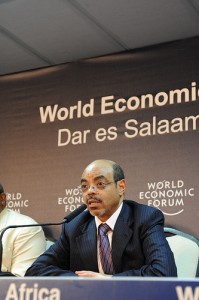By Mubarak Keder
Ethnic diversity has been understood, by some as one of the causes for slow economic development, poor governance and political instability in most African countries. Ethnic diversity by itself, however, does not result in political and economic problems of a country, rather it is the politicization of ethnicity that will entail these problems. Taking this into account, after getting their independence, many African countries work to diffuse the significance of ethnicity in the political sphere. For this reason, banning ethnic parties and any other identity based parties in general become a common practice in many sub-saharan countries around the 1990’s.
On the contrary to this understanding by most African countries, when TPLF (Tigrayan People’s Liberation Front) took power in 1991, in Ethiopia, it championed the idea of ethnic based politics. Instead of transforming the organization to form a national based political party, they encouraged the formation of ethnic based political parties by forming a coalition of their own ethnically disintegrated political parties.
As any ethnic based party in a highly multi ethnic country TPLF encountered a major setback at the early stage to rule the country, that was: the constituent of TPLF was not large enough to make up a majority and establish a government on its own. It overcome this problem , effectively, in a way it would be able to form a coalition with other ethnic groups while maintaining the ethnic groups disunited politically to prevent cross-ethnic unified opposition. To this effect, it formed a mere satellite parties in Amhara, Oromia and Southern region to form EPRDF(Ethiopian People’s Revolutionary Democratic Front).
Keeping ethnic groups separated is a technique to keep opposition from unifying, adopted from the colonial rule as, example of Kenya, pointed out by Anke Weber, “the creation of closed and cut off ethnic units enabled the British colonialists to effectively rule the Kenyan population without having to fear a united resistance.”
Unfortunately, politicizing ethnicity did not stop at establishing a government. The country’s federal system is, wholly, defined by ethnic line rather than regional territories. The ethnic federalism structuring of the country’s political system is manifested on the House of Federation, which rather than regional basis as a constituent uses ethnicity to allocate seats in the house. As a result , the multi ethnic federal territories of Dire Dawa and Addis Ababa have no representation in the House of Federation. This division of ethnicities become even more apparent by the “right for secession” clause included in the constitution , which fed into ethno nationalism.
As Alem Habtu (Ethnic Federalism in Ethiopia: background, present conditions and future prospects) well put it, “the constitution of the Federal Democratic Republic of Ethiopia starts with the words: ‘we the nations, nationalities and peoples of Ethiopia’. This phrase indicates that all ethnic groups as collectives rather than individual citizens are, in principle, the authors of the constitution. Thus Ethiopia’s ethnic federalism is federalism based on ethnic communities as the constituent units and foundations of the federal state.” He further noted, “Ethnicity has been emphasized at the risk of undermining the concept of citizenship. For example, Addis Ababa is a federal city, official identification requires ethnic identification, although the latter is irrelevant in a federal city.”
One of the main problems that come with politicizing ethnicity is that: when opposition groups react to structural inequality towards their ethnic groups - each of them perceive marginalizing , specially to their group - they come out as organization which stand for the that single ethnicity than the national interest.
Generally speaking, political parties adjust their variables in a way it would optimize vote. In a political system where the ethnic parameter is inconsequential, parties will have to work on competing policy proposals for the country in order to appeal to voters. Therefore, in such cases voters base their decision on the policy that appeal to them and ultimately the party with better policy plan will get the most vote. Contrarily, where politicization of ethnicity is predominant, appealing to the general public using alternative policy and strategies, is not crucial on optimizing vote. Instead, the parties simply count on votes from their respective ethnic groups. Due to this reason, ethnic based political parties are , for the most part, ineffective in putting forward competing policy proposals for the country. This in combination have a far reaching effect on the country’s development and political progress as the parties’ and consequently, the system’s failure to provide the best among various policy proposals is going to be directly projected on the countries wide ranging policies and their implementation.
When we look at the Ethiopian opposition in light of politicization of ethnicity, they are characterized as fragmented: large in number and small in size. They are, with a few exception, following the trend of organizing along ethnic line ; one of the main reason for this being the cultural and structural inequalities various ethnic groups faced since the imperial regimes.
Despite their justification to organize in this pattern, ethnic parties and politicization of ethnicity are viewed as backward and impediment for a country’s development in a wide spectrum. Moreover, it is a treat to go forward as a unified country. So, it is the responsibility of the oppositions to put an end to this trend and make the change to being politically progressive if they are going to get rid of the current tyrant rule and lead the country as a just, unified one nation.


 M
M International Airport, Addis Ababa.
International Airport, Addis Ababa.